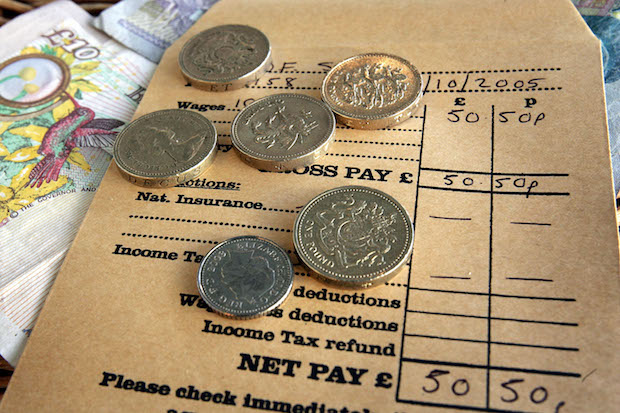Then there’s the bank of mum and dad and, increasingly, grandma and grandad.
Research published yesterday by Homewise, the over-60s property experts, found that more than half of grandparents in the UK are giving money to families, costing them on average £571 a year. The data also suggests that 54 per cent of over 55s have given a one-off lump sum to a family member over the past five years, with one in seven handing over more than £10,000.
There’s more. Findings from Understanding the Near Prime Market (‘near prime’ comprises 10.2-13.6 million UK adults who find it difficult to obtain a credit card from traditional lenders) show that only 16 per cent of those questioned would turn to a financial body such as Citizens Advice for help with money problems. However, the report by consumer finance provider NewDay found over a third would be prepared to turn to a family member.
What’s going on? Do we have no self-control when it comes to spending money? Or if life too expensive for a large tranche of the population in 2016?
Consider this: savings rates are at historic lows, young people are earning less than ever before, current accounts pay nothing (or next to nothing) in interest, unsecured credit is frighteningly easy to obtain – and let’s not forget the fog of uncertainty caused by the vote to leave the European Union.
Are we doomed or do we just need to take a long, hard look at our finances? Let’s pretend for a minute that the future is rosy and opt for the latter. Here are some tips from Money Advice Service:
Problem: I’ve paid my bills and now I don’t have any money left
Make a budget to work out how much you have going in and out each month. You can use the Money Advice Service Budget Planner to help with this. You can also look for ways of cutting your regular expenses by cancelling unused subscriptions, switching mobile, energy or broadband providers and cutting back on daily spending. On top of that, it might be worth thinking about cutting back for a few months to build up a savings buffer, to protect against sudden financial shocks.
Problem: Post-payday spending sprees
There’s nothing wrong with treating yourself now and again, but it’s important to budget for it so it doesn’t impact on your finances for the rest of the month. Before you make that impulse purchase, try to stop and think about whether you really need it and how it’ll affect your finances in the long run. Find a way to break that immediate impulse to splash the cash – after all you can always go back if you decide that you really need it. Some people find they can resist temptation by just walking away. Others might restrict themselves to only spending the cash they’ve got in their pocket. When it comes to things like clothes, gadgets and other expensive items, try shopping around to see if you can find the same item for cheaper elsewhere.
Problem: Using credit to cover costs
It’s tempting to use credit to survive till the end of the month. If you’re doing this, you run the risk of falling into problem debt which can have a serious impact on your financial wellbeing. It’s important to keep track of what you’re spending on credit and to ensure that you’re able to pay off your debts promptly. If you feel as though your levels of credit are starting to become unmanageable, it’s very important that you seek advice from a qualified debt adviser immediately. The Money Advice Service’s debt advice locator tool can help you find free sources of debt advice in your local area.
Helen Nugent is Online Money Editor of The Spectator






Comments